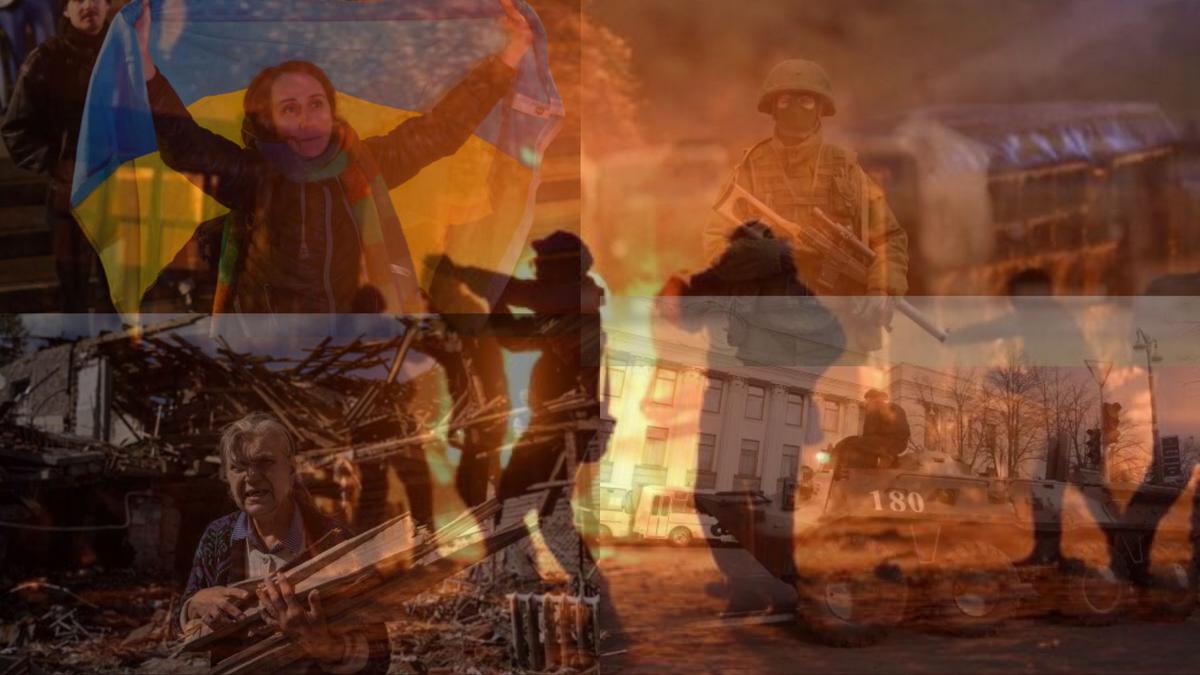by MAHIR ALI

Back in 1990, when the Soviet Union was on the cusp of disintegration but no one was clear about whether it would happen or the shape it might take, BBC radio aired a six-part discussion titled Russia, the Drive to Empire that led one through the trajectory of tsarist imperialism and then the Soviet alternative.
It’s still available as a podcast and, listening to it recently, I was struck by a comment in the final episode, where the discussion centred on whether the USSR could survive Mikhail Gorbachev’s perestroika and glasnost drive. With remarkable prescience, Dominic Lieven noted that in the event of a Soviet split, the rump Russian Federation would seek at some point to reclaim largely Russian-populated eastern Ukraine and northern Kazakhstan.
The redrawing of borders was not on the agenda when Boris Yeltsin and his Ukrainian and Belarusian counterparts met behind Gorbachev’s back to dissolve the USSR (excluding the 12 non-Slavic republics from the most consequential decision-making moment in their 20th-century history). Had Yeltsin brought up the return of Crimea to Russia, and perhaps even the incorporation of Russian-speaking slivers of eastern Ukraine, Leonid Kuchma may not have put up much resistance.
But Yeltsin was too drunk on illusions of his own greatness, exacerbated by western adulation since the absurd coup attempt of August 1991, to see the bigger picture, let alone to envisage how the surreptitious trilateral concurrence for a fait accompli might play out.
Even Yeltsin was subsequently alarmed, though, by Nato’s steady advance towards — and later beyond — former Soviet borders, contravening verbal promises to Gorbachev by the US and Germany. As Lieven’s better-known younger brother Anatol pointed out in The Guardian last week on the first anniversary of Russia’s invasion, even Vladimir Putin was initially open to the idea of a European security arrangement that included Russia but excluded the US.
None of this is intended to suggest that the “special military operation” Putin launched last year was justified. It was an incredibly stupid action, apparently based on delusions fuelled by misinformation. As an unnamed Putin associate recently told the Financial Times, “Stalin was a villain, but a good manager, because he couldn’t be lied to. But nobody can tell Putin the truth.”
Apparently, most of his advisers and aides politely told Putin that an invasion would not be a good idea. And most of them were unpleasantly surprised when he went ahead anyway. Among them was foreign minister Sergei Lavrov. Later that day, when an oligarch queried Lavrov about the decision, he reportedly received the response: “He has three advisers: Ivan the Terrible, Peter the Great and Catherine the Great.”
Like many Western historians and commentators, Putin mixes up the tsarist imperialist past with the Soviet interlude. Last Sunday, he railed against Western efforts to dismember Russia and to distance former Soviet republics from one another. Neither claim is absurd. On Jan 31, for instance, the conservative ECR Group in the European Parliament proposed a discussion on “the prospects for the creation of free and independent states in the post-Russian space”. And among the red rags that led Putin down the belligerent path was, as the younger Lieven puts it, “the US-Ukrainian Strategic Partnership of November 2021, which held out the prospect of Ukraine becoming a heavily armed US ally in all but name, while threatening to take the Donbas by force”.
Dawn for more
